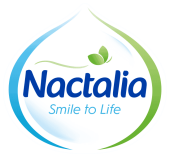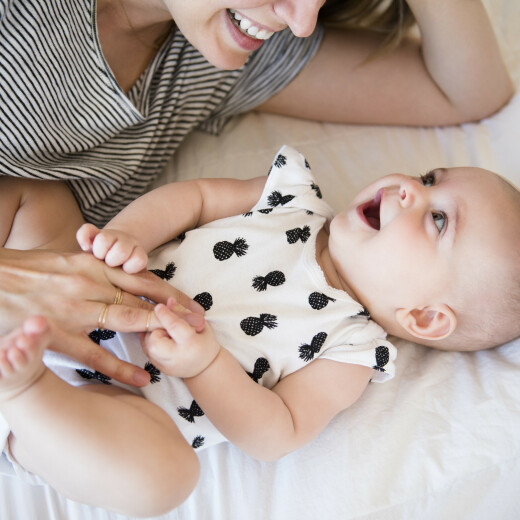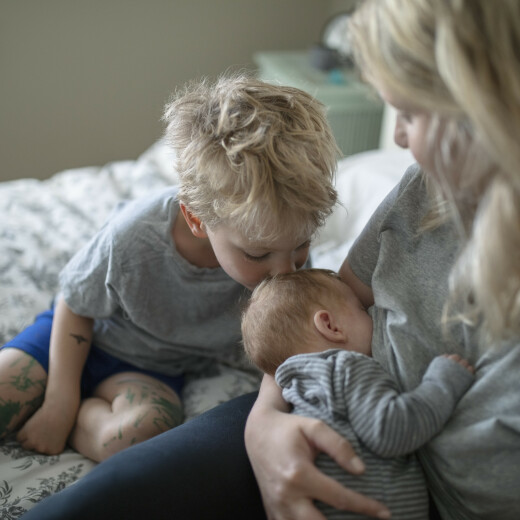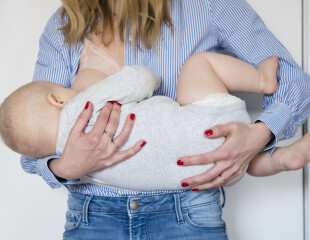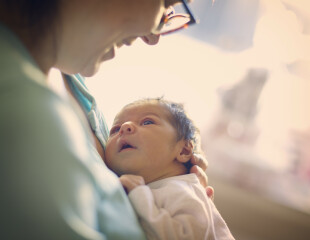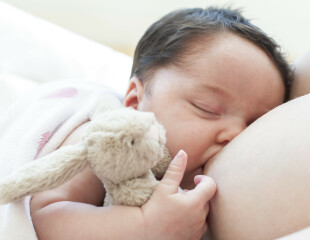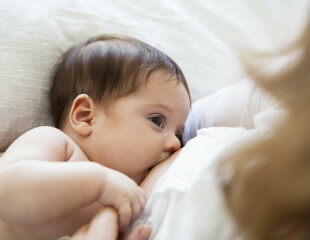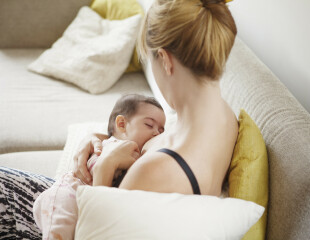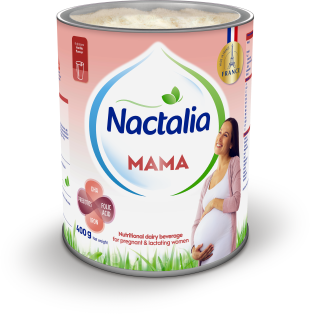
Precious moments to share
The first exchanges with your baby are all opportunities to strengthen the bond between the two of you. Feeds, skin-to-skin session, massage and even carrying baby are all unique moments of complicity that are precious for both your and your baby!
EXPERT ADVICE : the importance of the parent/child bond
The source of the theory around bonding, psychiatrist and psychoanalyst John Bowlby studied the behaviour and development of children separated from their families from the 1940s onwards. In 1951 he presented the World Health Organisation with a report that established the basis of this theory.
Thanks to the physical, and then emotional, bond established with the person who takes care of them (generally speaking, this is the mother from birth), the child develops a sense of security and progressively learns that they can trust other people and the larger outside world: a so-called secure bond allows them to develop their social skills and self-esteem more easily.
Contrary to popular belief, a strong bond ultimately encourages independence!
So developing a strong bond is vital during the first 6 months of life. This can be encouraged by means of various mothering techniques that focus on proximity between the baby and its mother, and then other people with whom the baby will create a bond (father, child-minder, etc.): breastfeeding baby, carrying them against the body as much as possible, being 100% available for them, offering them skin to skin session, massage, looking into their eyes, smiling at them, talking to them and satisfying their needs and requirements (being given a cuddle, fed…)
First looks, first smiles…
A long story starts with the very first looks you share with your newborn: the story of the parent/child relationship. Intense and very moving, these looks will slowly be accompanied by real smiles: unique moments of sharing that need to be the focus of your attention, with screens and smartphones, increasingly intrusive during these precious moments, very definitely put to one side.
Breastfeeding, and also carrying baby, skin-to-skin, stroking and massages: all moments of intimacy to create with your baby !
These mothering techniques, in addition to long discussions and songs shared with your baby, will help to build and strengthen the parent/child bond very easily.
Whether you carry them in your arms or in a sling, carrying baby in a vertical position helps wind them and reduces reflux. The second option also has the benefit of allowing you to get on with whatever else needs doing whilst cuddling your baby!
As far as skin-to-skin contact is concerned, whether it be with Mum or Dad, it generates a feeling of security and well-being.
Finally, any massages you are able to give baby from the very first weeks in life will strengthen communication between you as a result of your touch, to which your baby is very sensitive. They will be able to pick up on your mood and your state of mind through your hands… and reciprocally! In fact, your baby’s reactions, their state of relaxation, their smiles, the way they look at you will help you understand what they are feeling and what they need from you.
Sleeping close to baby
During the first 6 months of their life, you baby needs to feel your presence close to them both during the day…and at night! Professionals therefore recommend that you put their bed in your bedroom whilst their day/night rhythm becomes settled and they slowly start to have longer sleep cycles. Having their cot in your room means that you will be able to watch over them more easily and be available more quickly to breastfeed them. However, do not bring the baby into your bed to sleep with you as this can be dangerous.
And don’t forget that after giving birth you also need to get lots of rest so that you are able to take good care your baby !
